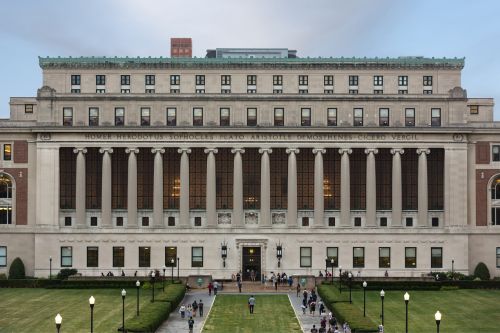Table of Contents
- Introduction to global microbiology colleges
- 10 best universities for Microbiology courses
- Harvard University, USA
- University of Oxford, UK
- Massachusetts Institute of Technology (MIT), USA
- University of Tokyo, Japan
- Stanford University, USA
- ETH Zurich, Switzerland
- University of California, Berkeley, USA
- Imperial College London, UK
- University of Melbourne, Australia
- Johns Hopkins University, USA
- Key takeaways
- FAQs
Introduction to global microbiology colleges
Microbiology universities are famous for their dedication to high standards of instruction, innovative research, and addressing the problems of the microbiology field. These institutions provide access to modern resources, a wide variety of programs, and chances for interdisciplinary research that go beyond standard schooling. In this blog, we will examine the international microbiology colleges,courses and what distinguishes them as leaders in scientific education.
10 best universities for Microbiology courses
These institutions offer unparalleled opportunities for students to cultivate a deep understanding of microbiology. Studying at these institutions leads to a thriving career in this ever-evolving discipline.
Harvard University, USA
Renowned for its academic excellence, Harvard University stands as a beacon for microbiology enthusiasts. The Department of Microbiology at Harvard boasts world-class faculty, cutting-edge research facilities, and a comprehensive curriculum. Students benefit from a multidisciplinary approach, delving into virology, bacteriology, and immunology. The emphasis on research opportunities and collaborative projects enhances the learning experience, making Harvard a top choice for aspiring microbiologists.
University of Oxford, UK

Steeped in centuries of academic tradition, the University of Oxford continues to uphold its reputation for offering outstanding microbiology programs. The Department of Microbiology and Immunology at Oxford provides a rigorous curriculum coupled with hands-on research experiences. Students benefit from the university’s strong ties with renowned research institutions, fostering an environment that leads to groundbreaking discoveries in microbiology.
Massachusetts Institute of Technology (MIT), USA
Established in 1861, MIT is a global leader in science and technology and excels in offering advanced microbiology programs. The Department of Biology at MIT is at the forefront of microbiological research, providing students with unparalleled opportunities to engage in innovative projects. The emphasis on interdisciplinary collaboration and state-of-the-art facilities makes MIT a powerhouse for aspiring microbiologists.
University of Tokyo, Japan
Celebrated for its contributions to science and technology, the University of Tokyo is a prestigious educational institution. The Department of Microbiology at the University of Tokyo offers a comprehensive curriculum that combines theoretical knowledge with practical skills. With a strong focus on research, students at this university benefit from exposure to diverse microbiological topics and emerging technologies.
Stanford University, USA
The Department of Microbiology and Immunology at Stanford University is synonymous with innovation and excellence. The university’s commitment to fostering a collaborative and dynamic learning environment sets the stage for aspiring microbiologists to thrive. Stanford’s Microbiology courses encompass a wide array of topics, ensuring students receive a well-rounded education that prepares them for the field’s challenges.
ETH Zurich, Switzerland

Founded by the Swiss federal government in 1854, ETH Zurich is a leading European institution that offers top-notch Microbiology programs. The Department of Biology at ETH Zurich provides students with a unique blend of theoretical knowledge and practical skills. The university’s commitment to research and innovation in microbiology is evident in its state-of-the-art laboratories and collaborative initiatives, making it a preferred choice for aspiring microbiologists.
University of California, Berkeley, USA
Renowned for its academic prowess, the Department of Molecular and Cell Biology at the University of California, Berkeley, offers a distinguished microbiology program. Berkeley’s commitment to fostering critical thinking and research skills ensures that students are well-equipped to navigate the complexities of microbiology. The university’s proximity to renowned research institutions and biotechnology hubs further enhances the learning experience.
Imperial College London, UK
One of the world’s leading centers for scientific research is Imperial College London, whose Department of Infectious Disease Epidemiology provides excellent microbiology education. Imperial’s emphasis on understanding the intersection of microbiology and public health sets it apart. Students benefit from exposure to real-world challenges, preparing them for impactful roles in addressing global health issues.
University of Melbourne, Australia
Department of Microbiology and Immunology at the University of Melbourne, a prestigious institution in the Asia-Pacific region, offers an exemplary microbiology program. Known for its commitment to research and innovation, the university provides students with a comprehensive understanding of microbial biology. The vibrant scientific community and collaborative research initiatives make the University of Melbourne an ideal choice for aspiring microbiologists.
Johns Hopkins University, USA
Recognized for its contributions to medical research, Johns Hopkins University houses a world-class Department of Molecular Microbiology and Immunology. Its microbiology program reflects the university’s commitment to advancing scientific knowledge. It combines foundational concepts with advanced research opportunities. Students benefit from exposure to renowned faculty and state-of-the-art laboratories, positioning them for success in the field of microbiology.
Key takeaways
- Choosing the right university for a microbiology degree is a critical decision that significantly shapes the trajectory of one’s career.
- The highlighted institutions stand out for their unwavering commitment to academic excellence, research innovation, and providing students with a holistic learning experience.
- Universities with a holistic learning experience that combines rigorous academic curricula and hands-on research opportunities prepare students for the dynamic field of microbiology.
If you liked this blog and are eager to know more about international universities, share your thoughts in the comments section below. Feel free to reach out for more information on study abroad programs, admission processes, or any other queries. Click here to contact us, and our dedicated team will be delighted to assist you.
Liked this blog? Read next: Sound Engineering courses | Top universities abroad
FAQs
Q1. What career options are available after completing a microbiology course?
Ans- Microbiology graduates can pursue careers in various fields, including research, healthcare, pharmaceuticals, and biotechnology. Job roles may include microbiologist, research scientist, clinical laboratory technologist, or quality control analyst.
Q2. Are there opportunities for students to publish research during or after completing Microbiology courses?
Ans- Some programs encourage or require students to participate in research projects that may lead to publication. Universities with strong research environments often facilitate such opportunities.
Q3. Are there interdisciplinary study opportunities beyond microbiology within these courses?
Ans- Yes, some courses may provide opportunities to explore interdisciplinary studies, allowing students to gain insights into related fields such as bioinformatics, environmental science, or molecular biology.






